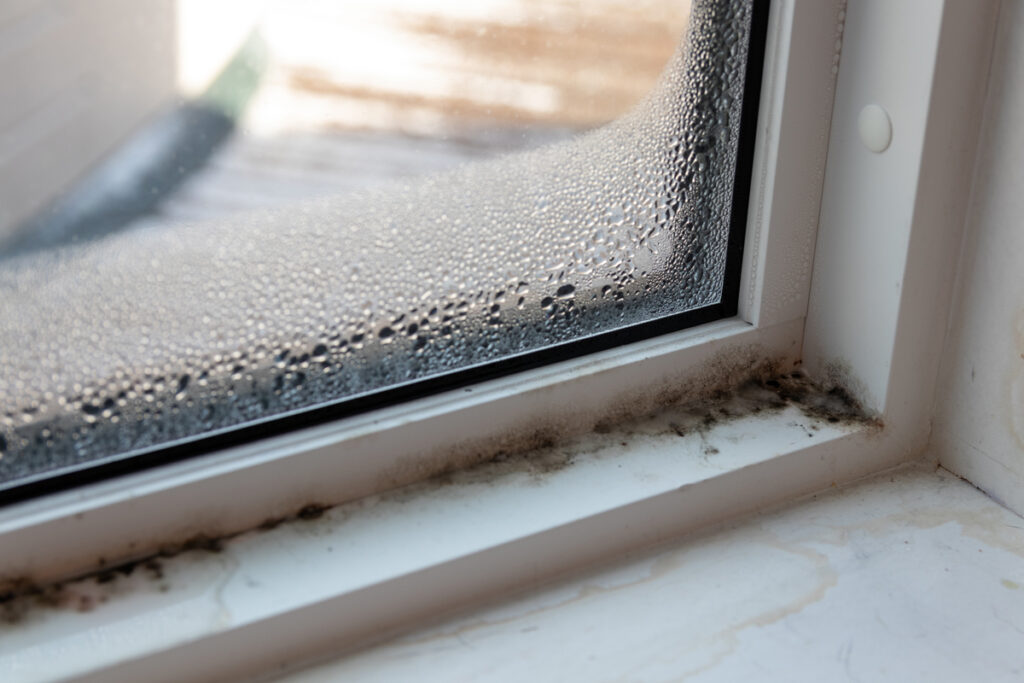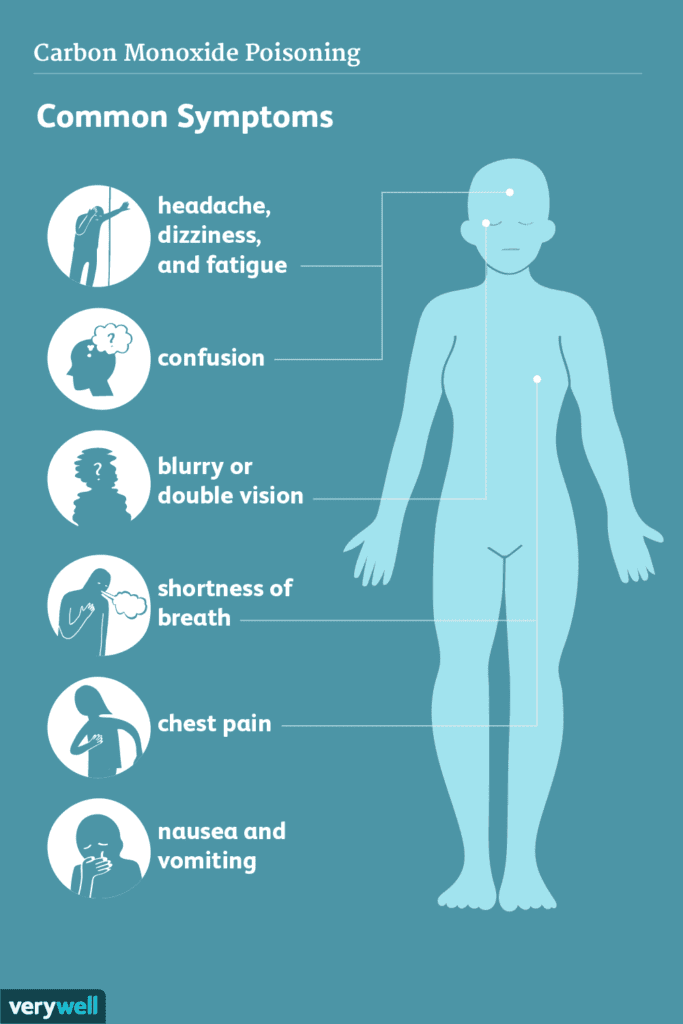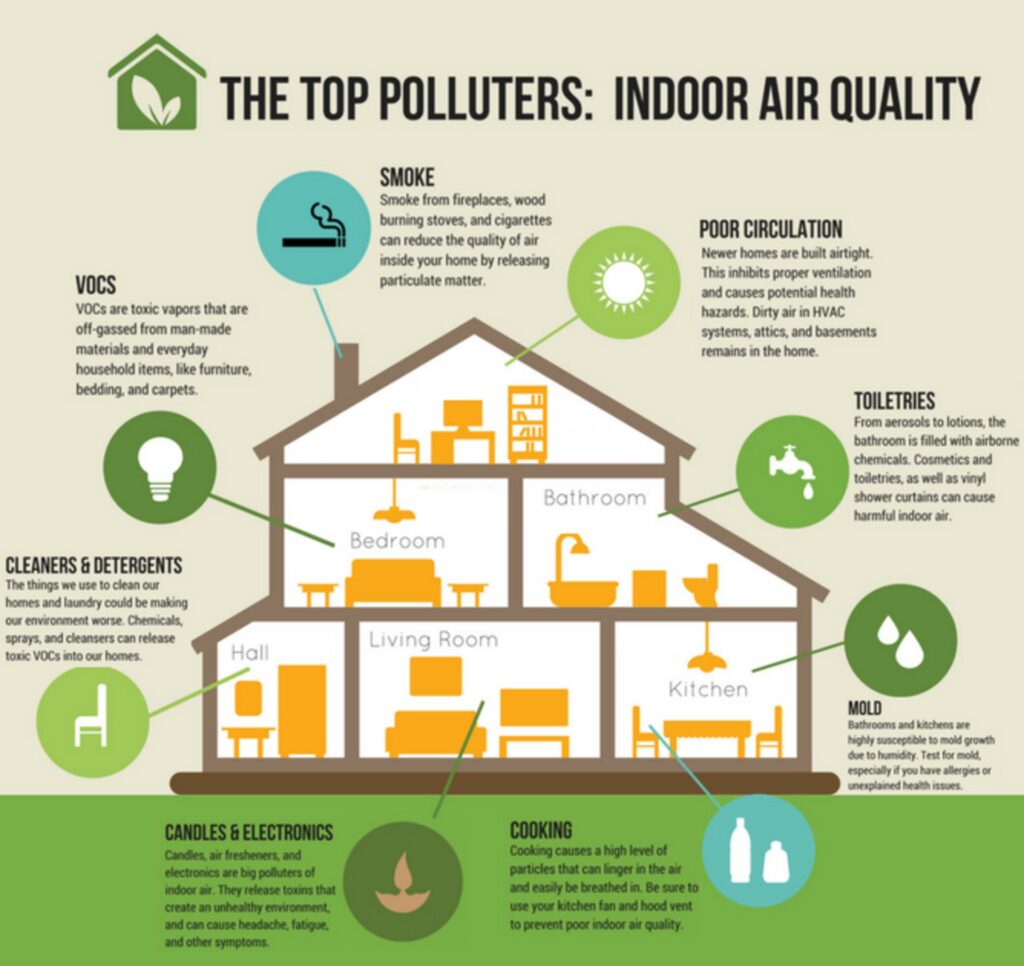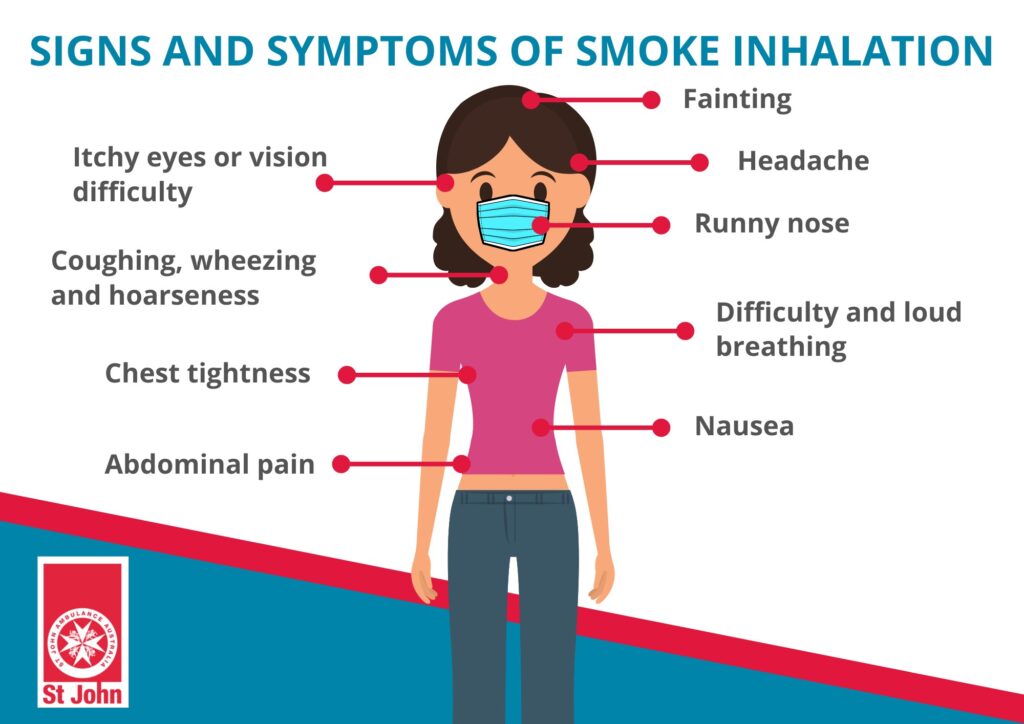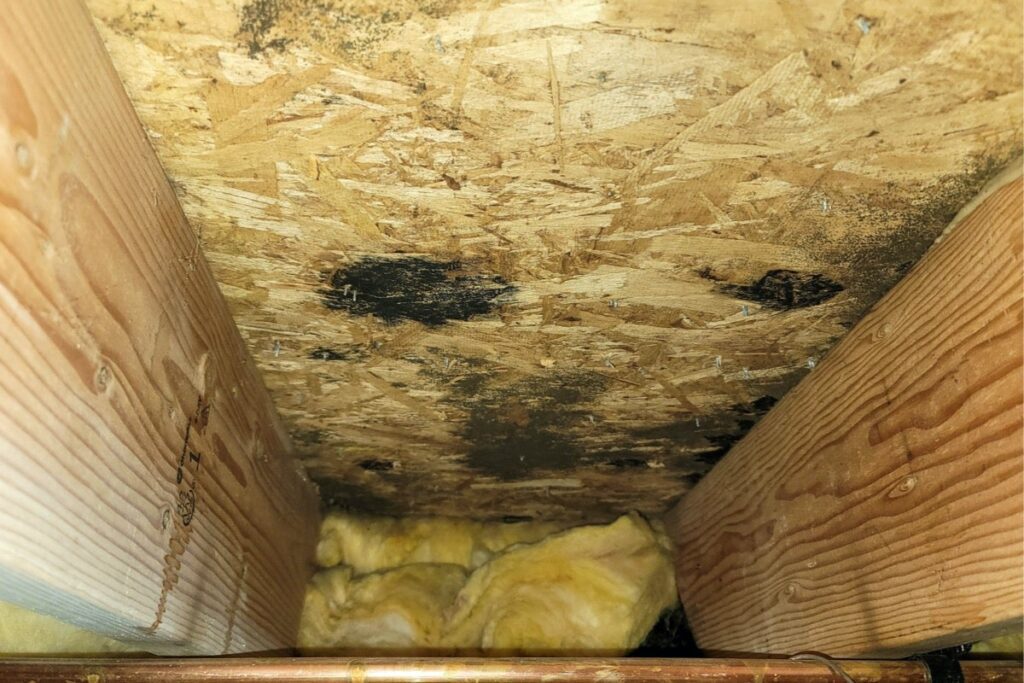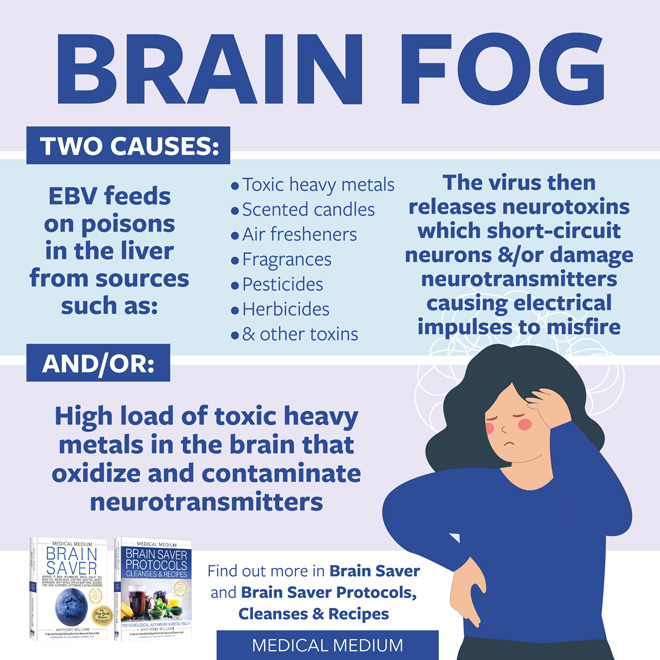If you’ve ever experienced mold exposure, you know how unpleasant it can be. But did you know that mold can also have serious health consequences? Mold sickness, also known as mold-related illness, can cause a range of symptoms that vary in severity. Here, we’ll explore the signs of mold sickness and what you can do to protect yourself.
Key Takeaways:
- Mold sickness can cause a range of symptoms that vary in severity.
- Some common signs of mold sickness include respiratory symptoms, allergic reactions, skin irritations, neurological symptoms, digestive issues, fatigue and weakness, and cognitive impairment.
- If you suspect mold sickness, it’s important to seek medical help and take action to address any mold issues in your environment.
Understanding Mold Sickness
If you’ve been exposed to mold, you may experience a variety of symptoms associated with mold sickness. It’s important to understand the potential health effects of mold exposure so you can recognize the signs and take action.
Mold sickness can affect individuals differently, depending on factors such as the type of mold, amount of exposure, and overall health. However, some common mold sickness symptoms include:
- Respiratory issues, such as coughing, wheezing, and shortness of breath
- Allergic reactions, including sneezing, runny nose, and itchy eyes
- Skin irritations, such as rashes and hives
- Neurological symptoms, including headaches, dizziness, and memory problems
- Digestive issues, such as nausea, vomiting, and diarrhea
- Fatigue and weakness
If you’re experiencing any of these symptoms and suspect mold exposure, it’s important to seek medical attention. Mold sickness can have serious health consequences, especially for those with weakened immune systems or preexisting respiratory conditions.
Additionally, it’s important to address mold issues in your living or working environment to prevent further exposure and potential health risks. This can involve fixing leaks or water damage, improving ventilation, and cleaning or removing mold-infested materials.
By understanding the potential health effects of mold exposure and being vigilant for symptoms of mold sickness, you can protect yourself and take action to address any concerns.


Respiratory Symptoms
When mold is present in your home or workplace, it can be difficult to avoid inhaling spores, which can lead to a variety of respiratory symptoms. If you have been exposed to mold for an extended period of time, you may experience coughing, wheezing, and shortness of breath, which can be signs of respiratory inflammation or asthma. In more severe cases, mold exposure can lead to lung infections or even permanent lung damage.
Other respiratory symptoms to look out for include chest tightness, congestion, and sinus problems. If you’re experiencing any of these symptoms, it’s important to seek medical attention to determine if mold exposure is the cause.


It’s worth noting that not everyone who has been exposed to mold will experience respiratory symptoms. Some people may not react to mold at all, while others may experience symptoms that are not related to their respiratory system.
However, if you do experience respiratory symptoms as a result of mold exposure, it’s important to address the issue as soon as possible. This may involve removing the mold from your environment or taking steps to reduce your exposure to mold spores.
Allergic Reactions
If you’re experiencing symptoms of mold sickness, it’s important to pay attention to any allergic reactions that may be occurring. Mold can trigger allergies in some people, leading to a range of symptoms that can be both uncomfortable and serious.
Common signs of mold allergy include sneezing, coughing, runny nose, itchy or watery eyes, and skin rashes. In some cases, you may also experience more severe symptoms, such as difficulty breathing or wheezing.
If you notice any of these signs of mold allergy, it’s important to take action to address the underlying cause of the problem. This may involve removing mold from your home or workplace, seeking medical treatment, or both.
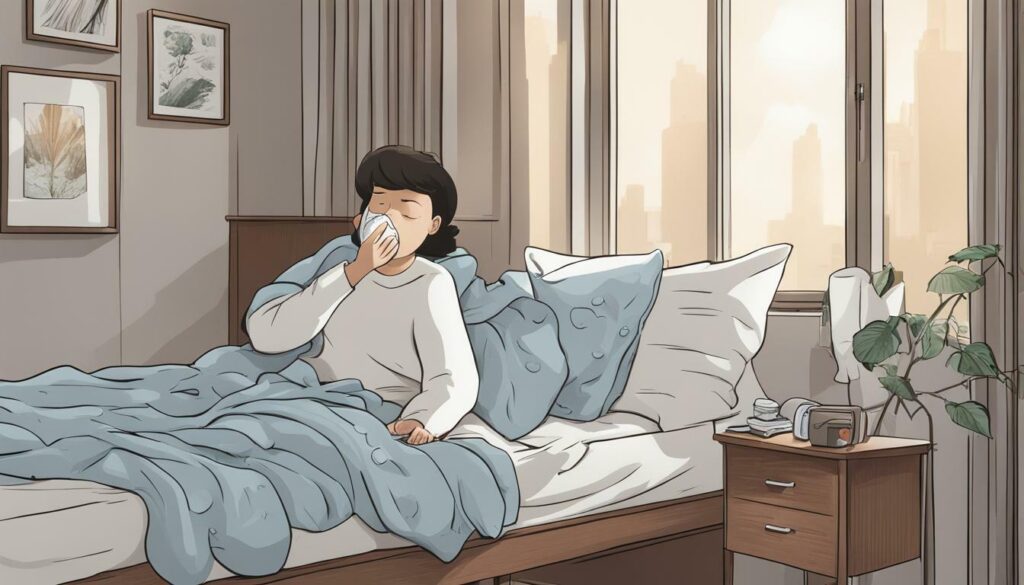

“People with mold allergies may suffer from symptoms all year long. They may experience more severe symptoms during the rainy season, when mold spores are more abundant.”
Skin Irritations
Mold exposure can cause a variety of skin irritations that may be uncomfortable and even painful. Some of the most common symptoms include:
- Rashes: These can appear as red, itchy patches of skin that may ooze or blister.
- Hives: Raised, red bumps that may be itchy and vary in size.
- Worsening eczema: For those with pre-existing eczema, exposure to mold can cause the condition to worsen.
- Burning or tingling: In some cases, mold exposure can cause a burning or tingling sensation on the skin.
| Image | Skin Irritations Caused by Mold |
|---|---|
  |
It’s important to note that skin irritations may not be the only symptom present with mold sickness. You may also be experiencing respiratory issues, allergic reactions, digestive problems, cognitive impairment, fatigue, or weakness.
If you suspect that mold may be the cause of your skin irritation or any other symptoms, it’s important to take action. This may include removing the source of the mold, improving ventilation, or seeking medical attention. Remember, recognizing the signs of mold sickness early on can help prevent further development of symptoms and potential health issues.
Neurological Symptoms
If you’re experiencing mold exposure symptoms, it’s important to be aware of the potential impact on your nervous system. Mold illness warning signs can include a range of neurological symptoms, from headaches and dizziness to confusion and memory loss. Health effects of mold exposure can be serious, so it’s crucial to recognize these symptoms and seek medical attention if necessary.
Mold toxicity signs may also include numbness and tingling in the extremities, as well as tremors and seizures in severe cases. Symptoms of mold-related illness can vary widely from person to person, so it’s important to pay attention to any changes in your cognitive or neurological functions.
If you’re experiencing any of these symptoms, it’s essential to take them seriously. Mold exposure can have long-lasting health effects, so it’s important to seek medical attention as soon as possible. Your healthcare provider can help determine the best course of action to address your symptoms and prevent further damage.


Digestive Issues
Mold exposure can have a range of effects on your body, including potential digestive issues.
Symptoms like nausea, vomiting, diarrhea, and abdominal pain may all be signs of mold-related illness.
In some cases, mold exposure can even lead to more serious gastrointestinal problems, like bleeding or inflammation of the intestines.
If you’re experiencing any of these symptoms and suspect mold exposure may be the cause, it’s important to seek medical attention as soon as possible.
In addition to addressing any immediate health concerns, you’ll also want to take steps to address the mold issue in your home or workplace to prevent future exposure.


Don’t ignore the signs of mold sickness when they arise. With awareness and prompt action, you can protect your health and prevent long-term health complications.
Fatigue and Weakness
If you are experiencing persistent fatigue and weakness, it could be a sign of mold sickness. Mold exposure can impact your energy levels, leaving you feeling tired and drained.
This symptom can be particularly concerning because it can affect your ability to work, exercise, and enjoy your daily activities. If you find that you are struggling to keep up with your usual routine, it may be time to consider the potential impact of mold exposure.
Fatigue and weakness can also be accompanied by other symptoms, such as headaches, nausea, and dizziness. If you are experiencing these symptoms along with fatigue and weakness, it’s important to seek medical attention as soon as possible.
Remember, mold sickness is a serious condition that can have long-term health effects if left untreated. By recognizing the symptoms and taking action to address mold exposure, you can protect your health and well-being.
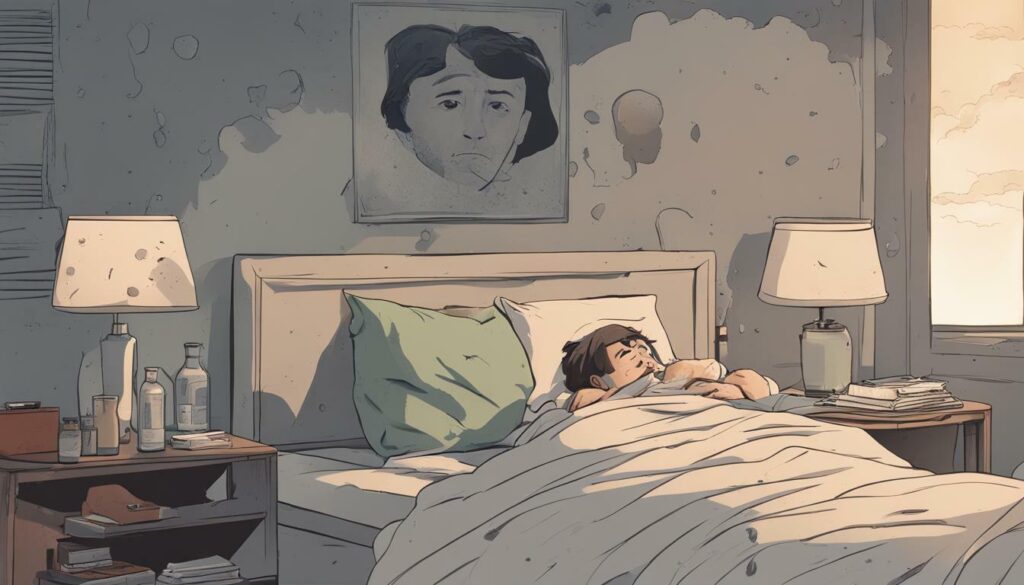

Neurological Symptoms
Mold exposure can have a significant impact on the nervous system, leading to a range of neurological symptoms that can be alarming and debilitating. If you’re experiencing any of the following symptoms, they could be an indication of mold sickness:
- Headaches: Mold toxins can trigger headaches and migraines, which can be persistent and severe.
- Dizziness: If you feel dizzy or lightheaded without any apparent cause, mold exposure could be to blame.
- Tremors: In some cases, mold sickness can cause tremors or shaking, which can be mild or severe.
- Foggy thinking: Mold toxins can affect cognitive function, leading to memory problems, confusion, and difficulty concentrating.
- Mood changes: If you’re feeling more irritable, anxious, or depressed than usual, mold exposure could be a factor.
If you’re experiencing any of these symptoms, it’s important to take action as soon as possible. Neglecting mold sickness can lead to more serious health issues in the long run, so don’t hesitate to seek medical attention if you’re feeling unwell.


Other Symptoms and Considerations
In addition to the symptoms listed above, mold exposure can lead to a range of other health effects. Some people may experience sensitivity to light or noise, while others may notice changes in their vision or hearing. Fatigue, headaches, and difficulty sleeping are also common symptoms of mold sickness.
It’s important to note that the symptoms of mold-related illness can vary depending on the individual and the severity of the exposure. Some people may experience mild symptoms that go away on their own, while others may develop more severe health problems that require medical attention.
If you suspect that you may be suffering from mold sickness, it’s important to seek medical help as soon as possible. A healthcare professional can help you identify the underlying cause of your symptoms and recommend a course of treatment.
In addition to seeking medical help, it’s important to take action to address any mold issues in your environment. This may involve contacting a professional mold remediation service to remove the mold and improve the air quality in your home or workplace.
Remember, the key to preventing mold sickness is to be aware of the signs and symptoms and take action as soon as you suspect a problem. By staying vigilant and taking proactive steps to protect yourself and your loved ones, you can minimize your risk of mold-related health problems.


Seeking Help and Taking Action
If you suspect that you may be experiencing signs of mold sickness or have been exposed to mold, it’s essential to seek medical help. A healthcare professional can evaluate your symptoms and provide guidance on the best course of action to take.
Depending on the severity of your symptoms and the extent of your exposure, your doctor may recommend various treatment options, such as medication, allergy shots, or lifestyle changes.
In addition to seeking medical help, it’s crucial to take action to address any mold issues in your home or workplace. This may involve fixing any leaks or moisture problems, increasing ventilation, and cleaning or removing any moldy materials.
If you’re not sure whether there is mold in your environment, you can have a professional mold inspection done to assess the situation and identify any areas of concern.
Remember, taking action to address mold exposure can help prevent further health complications and improve your overall well-being.


Don’t ignore the signs of mold sickness. Take action to protect your health.
Conclusion
Recognizing the signs of mold sickness is essential for maintaining your health and well-being. By understanding the potential symptoms and health effects of mold exposure, you can take action to protect yourself and your family.
If you suspect that you may be experiencing mold sickness, it’s important to seek medical help. Don’t wait until your symptoms escalate; early intervention can make a significant difference in your recovery.
Remember, some of the most common signs of mold sickness include respiratory symptoms, allergic reactions, skin irritations, neurological symptoms, digestive issues, fatigue and weakness, and cognitive impairments. Other symptoms and considerations may also arise, so it’s best to keep an eye out for anything unusual.
If you suspect that mold is present in your home or workplace, take action to address the issue. This may involve hiring a professional mold remediation service, improving ventilation, or regularly cleaning and drying damp areas.
By staying vigilant and taking proactive measures, you can protect yourself from the harmful effects of mold exposure and promote a healthier living environment.
FAQ
Q: What are the signs of mold sickness?
A: The signs of mold sickness can vary but may include respiratory symptoms, allergic reactions, skin irritations, neurological symptoms, digestive issues, fatigue and weakness, cognitive impairment, and more.
Q: How can I identify key symptoms of mold sickness?
A: Key symptoms of mold sickness can include coughing, wheezing, nasal congestion, sneezing, itchy or watery eyes, skin rashes or irritation, headaches, memory problems, difficulty concentrating, fatigue, weakness, and digestive problems.
Q: What are the health effects of mold exposure?
A: Mold exposure can lead to a variety of health effects, including respiratory issues, allergies, skin irritations, neurological symptoms, digestive problems, fatigue, weakness, and cognitive impairments.
Q: When should I seek medical help for mold sickness?
A: If you suspect that you may be experiencing mold sickness, it is important to seek medical help. Consult a healthcare professional if you are experiencing persistent or worsening symptoms related to mold exposure.
Q: How can I take action to address mold issues?
A: If you believe you have a mold problem in your environment, it is recommended to contact a professional mold remediation company. They can help assess the situation, identify the source of the mold, and safely remove it to improve your indoor air quality.
Q: What should I do if I suspect mold exposure?
A: If you suspect mold exposure, it is important to take action to address the issue. This may include inspecting your environment for signs of mold, addressing any moisture or water problems, improving ventilation, and seeking professional help if needed.
Q: Can mold sickness cause cognitive impairments?
A: Yes, mold sickness can cause cognitive impairments such as memory problems, difficulty concentrating, and brain fog. Mold toxins can affect the nervous system and impact cognitive function.
Q: What are some common signs of mold sickness?
A: Common signs of mold sickness can include respiratory symptoms, allergic reactions, skin irritations, neurological symptoms, digestive issues, fatigue and weakness, cognitive impairments, and more.
Q: How does mold exposure affect the respiratory system?
A: Mold exposure can irritate the respiratory system and lead to symptoms such as coughing, wheezing, nasal congestion, sneezing, and shortness of breath. In some cases, it can also trigger or worsen asthma symptoms.
Q: Can mold exposure cause skin irritations?
A: Yes, mold exposure can cause skin irritations such as rashes, itching, and redness. Contact with mold spores or mycotoxins can irritate the skin and lead to dermatological symptoms.
Q: Are there any other symptoms of mold sickness to be aware of?
A: In addition to the common symptoms mentioned earlier, other symptoms of mold sickness may include sinus infections, sore throat, joint pain, muscle aches, mood swings, depression, and more.


